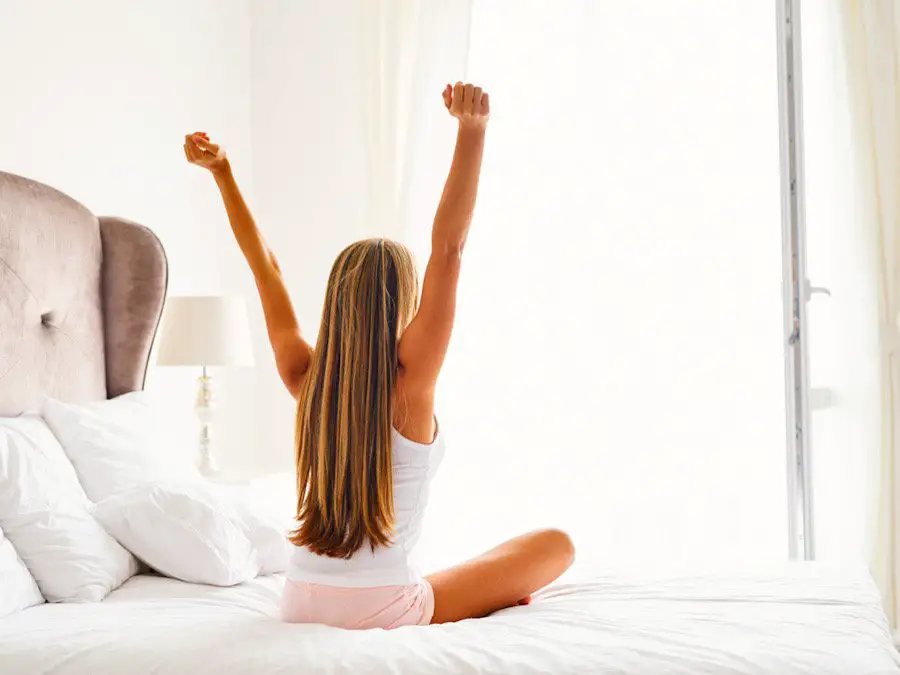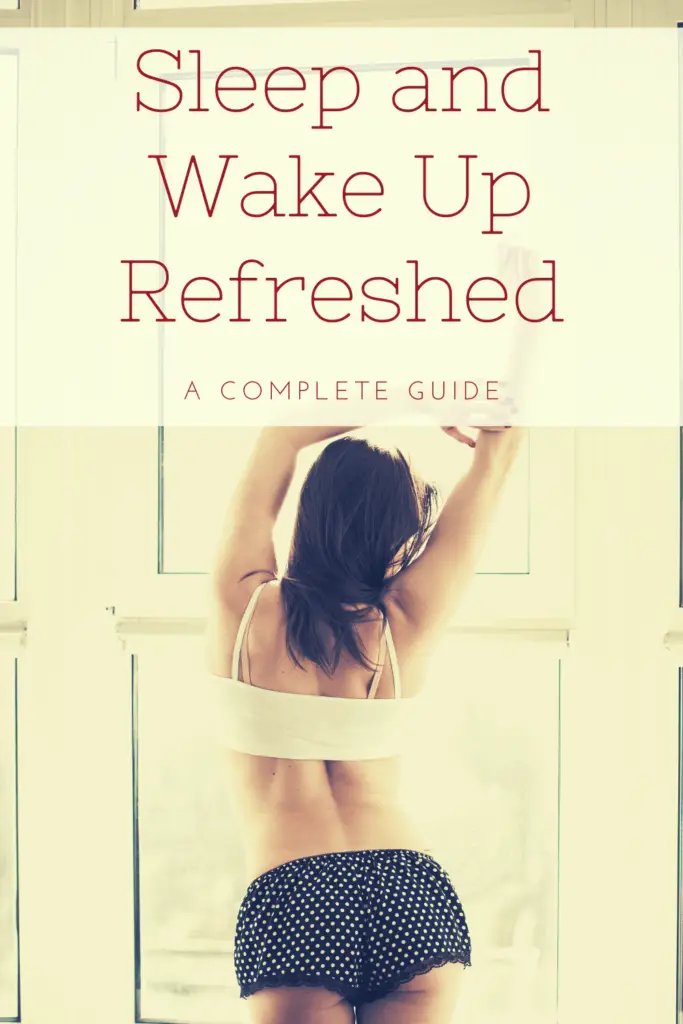When we consider our health, we more often think of our diets, exercise habits, and visits to the doctor. While those are all important, getting enough sleep is just as important. Did you know that scientists believe we should be able to wake up feeling refreshed regularly? If you’re not, there can be both short-term and long-term effects on your health. So, how to sleep and wake up refreshed?
The key to sleeping and waking up refreshed is developing a solid routine around sleep. This involves sleeping the right number of hours, waking up and going to sleep at consistent hours, and controlling your exposure to blue light and your caffeine intake. Some techniques, like meditation and journaling, as well as some tools, such as blue-light-filtering glasses, sleep trackers, and blue light therapy devices, can also contribute to a refreshing sleep.
When you’re getting enough deep sleep, it gives your body and your mind a chance to recharge. When people talk about the healing power of sleep, they actually mean it. Our bodies repair themselves while we’re resting. Our minds have a chance to get quiet, and our brains take this chance to focus effort where our bodies need it. While sleep is important, in today’s world, it’s often one of the first things we strike from our routines.
So how do we realistically work healthy sleep habits when our lives don’t always make room for them? We prioritize sleep. And like with any habit, we find ways to build healthy sleep habits into the routines we already have so that we can stay consistent with our habits in the long term.
In this article, we’re going to dive deep into the many factors that can affect your sleep and strategies for improving the quality of sleep you’re getting.
Table of Contents
What Deep Sleep Does For Our Health
There are four stages of sleep, numbered one through four, with four being where deep sleep happens. Most of the night, we are in stages one or two, but it’s in those valuable deep sleep hours where most of our health benefits lie.

During deep sleep, studies have found that our body works the hardest on physical recovery from the day. Our metabolism and blood sugar levels have a chance to balance out while we’re snoozing. The immune system takes a chance to get recharged. Our brains detoxify from all the chemicals it needs to be using while awake.
Deep sleep also has a heavy impact on our mental health. While we are in deep sleep, our memories are consolidated. Our brain takes this opportunity to process all the things we’ve learned and emotions we’ve had to deal with during the day. Studies found that during deep sleep, our dreams let us process those feelings and memories.
If you’ve ever felt like you were “just a mess” after not getting enough sleep, that seems to be a pretty accurate description of the experience your body is going through. We need sleep like we need air and food. Without it, we’re a bit lost.
Getting the Deep Sleep You Need
If you think you can get away with six hours of sleep a night, you’re wrong. While everyone’s needs are different, they will range from seven to nine hours of sleep each night for adults. You should monitor yourself to see where you do best and then stick with aiming for that many hours consistently every night.
However, some people may be doing their best to go to sleep at the same time every night, and giving themselves the required number of hours, and still not be getting enough deep sleep. That feels terribly unfair, but it’s true.
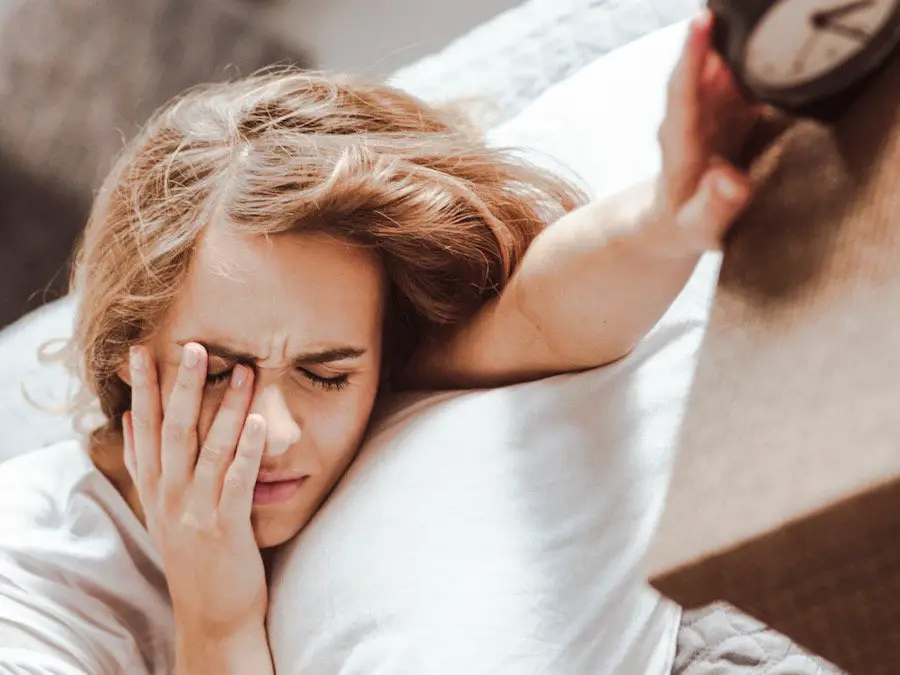
To improve this situation, there are quite some things you can do.
To get more deep sleep with a sleep routine firmly in place, add things into your daily life like a healthy diet, regular exercise, listening to white noise when you’re asleep, keeping your bedroom a cool temperature at night, starting a meditation practice before bed, reduce your stress in your daily life, and using an eye mask when you’re asleep.
How do you know if you’re getting enough deep sleep? This can be tricky! Generally, if you are feeling the effects of lack of sleep even though you’re going to bed on time, it is a good sign you may not be getting enough deep sleep. You can try the tips listed out above. If nothing seems to be working for you, it may be time to visit a sleep clinic to be sure you don’t have a sleep disorder affecting your rest.
Another option is to get a sleep tracker. These are still new devices but can get closer to tracking your sleep patterns. This can give you hints at how much deep sleep you’re getting each night. It can also provide a closer look at how well you’re sticking to your routines.
The Effects of Poor Sleep On Your Overall Health
While getting deep sleep can do great things for your health, not getting it can do terrible things to your health. This isn’t meant to scare you, but it’s good to be aware of the realities. Studies have been done that show people with poor sleep have strong links to type 2 diabetes, obesity, depression, and heart disease. Regular lack of sleep has been tied to a shorter life expectancy.
In the short term, you’ll notice a lack of sleep affects your daily life. Some of the signs of poor sleep may be noticeable and easy to tie to your lack of sleep. For example, if you feel excessively tired and are yawning a lot, you’ll likely realize this is due to poor sleep.

Some symptoms of poor sleep in your daily life may be a little bit harder to recognize. If you are increasingly irritable, struggling with mood swings, have a difficult time focusing, are struggling with your creativity, and find that your decision-making skills are suffering, these can all be daily signs of lack of sleep.
There are many other symptoms that can mean sleep troubles in the long or short term, these are just some of the key ones many are likely to notice. Suffice to say, sleep is important to good health.
Your Circadian Rhythm, Sleep, And Your Relationship With Blue Light
Even if you don’t fully know what it is, you’ve probably heard of blue light sometime in the past few years. This has become a big topic. The screens we look at all day on our computers, televisions, and yes, our phones, are making it harder for us to get deep sleep.
But why is that? What does it all mean?
Let’s break this down. To begin with, blue light isn’t actually a bad thing. In fact, using it on our screens isn’t necessarily a bad thing either. Blue light is also something we experience in sunlight. In terms of sun exposure, that’s actually a good thing. It helps keep us awake.
We all have a circadian rhythm. Basically, this means that our bodies have different natural chemicals it feeds us so we know when to be awake and when to go to sleep. The circadian rhythm handles the timing of other bodily functions as well, but sleep is what we know it best for. Blue light, found in the UV-rays from the sun, signals to our brain that it’s time to be awake and ready for the world.

In the dimly lit hours of the evening, our bodies are set to start releasing melatonin. Melatonin is a hormone released by the pineal gland. In terms of the best body chemistry for sleep, melatonin works best to get us deep relaxing sleep when we have the chance to release melatonin around the same time every night. It keeps our bodies in a natural and predictable rhythm, making sleep come easier.
Studies have shown that exposing ourselves to blue light through computer and phone screens disrupts this natural rhythm.
Exposing ourselves to blue-wavelength light right up to the moment we go to sleep makes it difficult for our bodies to know when to release melatonin. It’s also not great if we are making some effort to cut out blue light, but somewhat randomly, going to bed and cutting off the blue light at different times every evening.
So what can we do about it?
The most effective and clear-cut solution is to dim the lights in your home and stay away from all screens starting a few hours before bed each night. Doing this at the same time, and going to sleep at the same time, can help a lot.
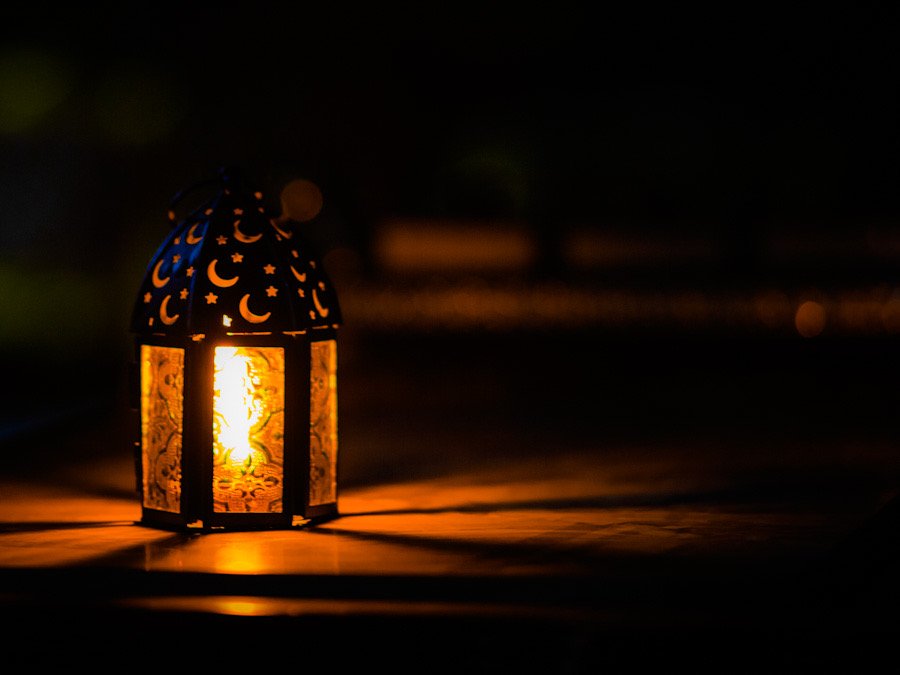
However, in the modern world, this isn’t a realistic routine for many of us. So, let’s look at other ways people are handling this today.
One strategy is to use amber-tinted glasses. These were designed specifically to block blue light. While this doesn’t do anything to block other things that may keep us awake, like notifications on our phones that may stress us out or overstimulate us in other ways, it will limit the blue light.
In fact, it limits the blue light so well in studies that they found people produce the same amount of melatonin if they’re wearing blue light blocking glasses in a fully lit room or while using an electronic device as they do when they’re in a dim room in the evening.
If you’re going to have lights on in the evening or looking at screens, blue-light-blocking glasses should be essential to your evening routine. Keep in mind that putting them on at the same time every evening can be very helpful.
If you are interested in getting good blue light blocking glasses without spending a fortune, check out our article ‘Best Blue Light Blocking Glasses Under $50.’
There are a few other ways you can help steady your natural circadian rhythm, limit blue light in the evenings, and improve your quality of sleep.
- Get plenty of blue light during the early daylight hours. The best solution here is to go outside and get some sunlight exposure. Always be mindful of the sun and wear sunscreen. Adding a little natural light to your daylight routine can be great for your body’s natural rhythm. If this isn’t a realistic option for you, try a blue light therapy device.
- Turn off the lights one to hours before you go to sleep. This means all your lamps. You can get a red or orange lamp for reading. Be sure to check that it doesn’t have any blue light. If you prefer, candles are also an option.
- Make sure your bedroom is dark when you go to sleep. You can use a sleep mask if there’s no way to make your bedroom pitch dark. This step into total darkness will help signal your body that it’s definitely time for sleep.
Take A Look At Your Habits Before Bed
You need a bedtime routine.
We took a look at this above with the discussion on blue light, but this goes far beyond that. We’re back to considering your circadian rhythm, and how consistently going to sleep at the same time every night and waking up at the same time every day keeps your body’s natural clock on schedule. Yes, this means keeping the same sleep schedule on weekends, too. Once you do it for a while and notice an improvement in your sleep quality, you’ll swear by it.

The first thing you need to do is decide on what your regular sleep hours are going to be. Decide what time you need to get up in the morning. Be realistic about this and give yourself time for a morning routine. Then, work backward. Most people need eight hours of sleep, everyone needs somewhere between seven and nine. Remember you’re going to stay consistent.
Set a bedtime, and then set a time where you’re going to start relaxing before sleep. Set an alarm on your phone for the time when you are going to start relaxing each evening. Stick to it.
What are some habits you can use to ease yourself into a regular bedtime?
- Lower the temperature in your bedroom. The best temperature for sleep is 65 degrees Fahrenheit. This can vary somewhat, but for the most part, it should be somewhere between 60 and 67 degrees. This will offer the most comfortable temperature for sleep.
- Get your body nice and relaxed. A lot of people enjoy an herbal sleepy time tea, like chamomile. Reading a book is a strong choice, but make sure you’re avoiding blue light when you do so. Many e-readers are blue-light-free today, or you can wear blue-light-blocking glasses. Taking a relaxing bath is another way to get a relaxing night of sleep. Meditating is also another common choice. Whatever your evening routine, try to be consistent about it. This will clue your mind and body in that it’s time for rest.
- Try putting on some white noise. This will help you get to sleep and stay that way. If you don’t want to purchase a white noise machine, some apps play white noise. You can also try turning on a fan or playing quiet and steady music.
Are Your Morning Habits Affecting Your Sleep?
Are you hitting the snooze button when you wake up? Many of us fall prey to this trap. Don’t do it! The button was created to keep people from ignoring important alarms altogether. It has turned into a routine that keeps you in bed for another five minutes, ten minutes, or maybe half an hour. Those are not the deep sleep minutes you need. Instead, those extra few minutes of sleep are messing up your body’s block.
You want to know how to sleep and wake up refreshed? You need to wake up at the same time every day. When you play games with your body by going back to sleep for ten minutes at a time, you’re teaching your body that it’s not really time to be awake yet. Instead, you need to train your body that we are up and ready to go!

Do you have extra time in the morning to gather yourself? Don’t use it on your phone. This lets your mind wander around aimlessly, get stressed out about work notifications, and get sucked into depressing news. Looking at the internet too early in the morning can upset the balance of your whole day. Instead, use that time for something that can help get you awake and be good for your physical and mental health. This is a good time to clear your mind with journaling or meditation or to build a healthy exercise routine.
If you don’t already have a habit of making your bed as soon as you get up, you may hate this idea. However, making the bed right away is a task that doesn’t require much time or brainpower. It’s a powerful way to get something done straight away so you get that satisfaction and signal to yourself that sleep is over. It’s time to feel awake.
Queue your mind to wake up with some great upbeat music.
Our sense of awakeness is tied strongly to our sense of smell. Unburden your mind with a scent you enjoy every morning, something strong and wakeful, like mint or citrus. You can get a diffuser to make this easy.
Are you a caffeine drinker? (Guilty!) It’s okay to drink caffeine in the morning, but if you’re going to, drink a glass of water before you do. If you’re craving the coffee the second you wake up, this may sound like not a lot of fun, but it will liven your metabolism in the morning which will have an effect you can feel all day. Drink water, and then go ahead and enjoy that coffee.

Is your morning routine feeling good? If not, reorder it. If you aren’t feeling refreshed when you wake up, this may have a lot to do with your routine getting you down. If you can, get a journal. If you’re not much of a writer, this can just be brief notes. Write down how you’re feeling each morning. Do you feel rushed? Stressed? Tired? Frustrated? I was very skeptical at journaling at first, but once I tried it I was amazed at how effectively it can help you release your burdens, alleviate stress, and set you up on the right track for the rest of the day. If you are new to journaling, you’ll definitely want to check out my article ‘Journaling for Beginners – A Complete Guide.’
One thing that can really get in the way of a smooth morning is clutter. If you are having trouble keeping your spaces organized and are starting to feel a bit overwhelmed, check out our article ‘Decluttering for Stress Relief – A Complete Guide.’
Remember, you’re in control of your life here. You can change any part of your morning routine. Even if there are factors that need to happen, like your kids have to get to school on time, you can change things like the time you have your coffee, or making their lunches the night before, and find ways to make the situation better.
It takes time to change your routine. It happens with a lot of little things, done consistently. If you’re struggling in the morning, remember that you can change anything, it just takes persistence.
What Are You Doing During the Day For Good Sleep At Night?
You need to have a rule where you can’t have caffeine after a certain time every day. Research has proven that caffeine has a half-life of about six hours. If you’re drinking a coffee at five in the morning, you’ll still be feeling some of the effects of that drink at ten at night. If you’re someone who’s sensitive to caffeine, the effects can last even longer. If you’re a big coffee drinker, you need to set a time for your last coffee of the day and be firm about it for healthier sleep.
You should see a little sunlight every day. This goes back to your circadian rhythm and blue light. If you can’t get outside into sunlight much, consider trying a blue light therapy device.
Take a closer look at your dinner. It shouldn’t be too close to your bedtime. It also shouldn’t be full of too many carbohydrates or foods that give you heartburn.
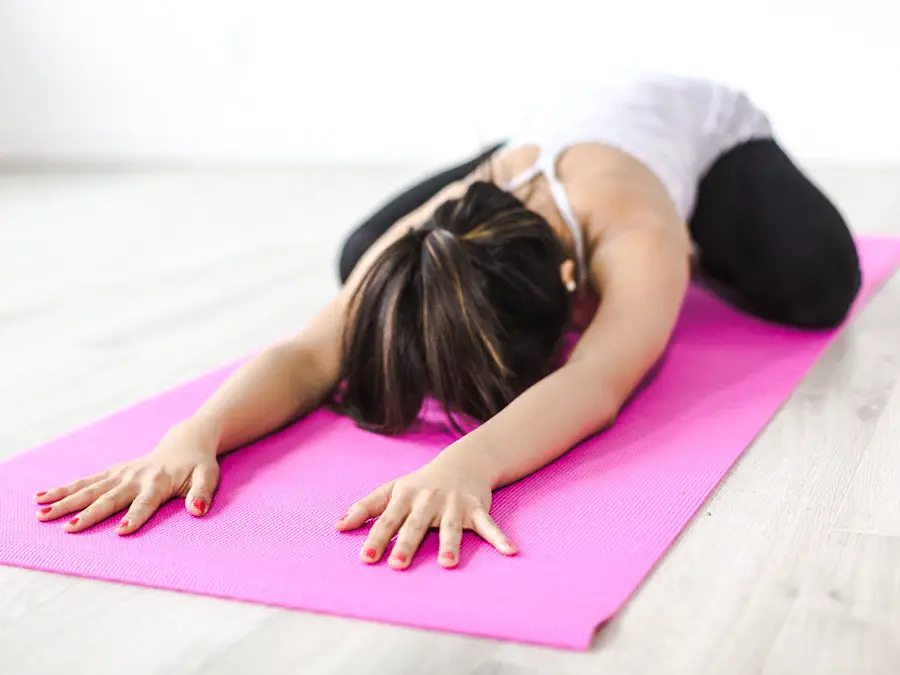
Are you managing your stress levels? One of the real kickers here is that not sleeping well can raise your stress levels, but high-stress levels can make it difficult to get deep sleep. Managing stress is always easier said than done though. Harvard Medical School suggests addressing stress in three key areas: cognitive behavioral therapy, healthy goal setting techniques, and relaxation. Some key ways you can relax during the day are to make a habit of taking time to stop and meditate, do deep breathing exercises, or yoga. Putting these habits into your schedule with allotted time can make them true habits.
Do you have a napping habit? This may be okay, but make sure it isn’t for too long. It also helps if it’s at the same time every day and for the same length. Then it may be part of your natural circadian rhythm. A brief twenty-minute nap every day may be a nice recharge. If you’re sleeping for long periods though, this is likely another symptom of lack of sleep. It may also be making it more difficult to get to sleep at night.
What To Do If You’re Trying and Still Don’t Feel Rested
Do you feel like you’ve run out of things to try? Then the next step may be visiting a sleep clinic.
They’ll perform a sleep study. This may sound intimidating, but they’ll be able to give you all the important information you need on how well you’re actually sleeping and whether you may have a sleep disorder affecting your nightly rest. From there, they can give you tips on the next steps.
The Bottom Line
This article went into depth about how to sleep and wake up refreshed. It addressed many of the problems different people have, some of which may apply to you. At the end of the day, there are a few big takeaways here.

The first thing to note is that getting consistent deep sleep is all about your daily habits. It goes into what you’re doing before bed, during the night, in the morning, and throughout the day. Remember how important sleep is for your health and don’t “let yourself off the hook” by changing a routine that’s working for you.
The second thing is how small all those habits truly are. These are things you can control. Getting a comfortable sleep mask is an easy thing to do. It feels silly to say that your sleep mask is important, but it is. It may feel dramatic to say that it’s a hard and fast rule that you don’t have coffee after three in the afternoon, but that rule may keep your sleep consistent, which may keep you from feeling frazzled every day. These things matter, just like your sleep matters. It’s all in the details.
One more parting thought here before you go off to set your sleep schedule and embrace your bedtime routine. Remember that sometimes, life will happen and unsettle your sleep schedule. Even if you’re really strict about it and take it incredibly seriously, you may have a few nights where your child is sick and you’re taking care of them. As important as sleep is, taking care of your child will always beat out.
If there are circumstances where you occasionally have to let your sleep schedule slide, that’s life. But don’t let a single derailment mean you give up on your schedule altogether. Too often, a couple of nights without sleep turns into weeks or even months of “letting it slide”. Remember how important your sleep is for your health, reinstate those habits, and get your sleep schedule back on track. I know you can do it!

